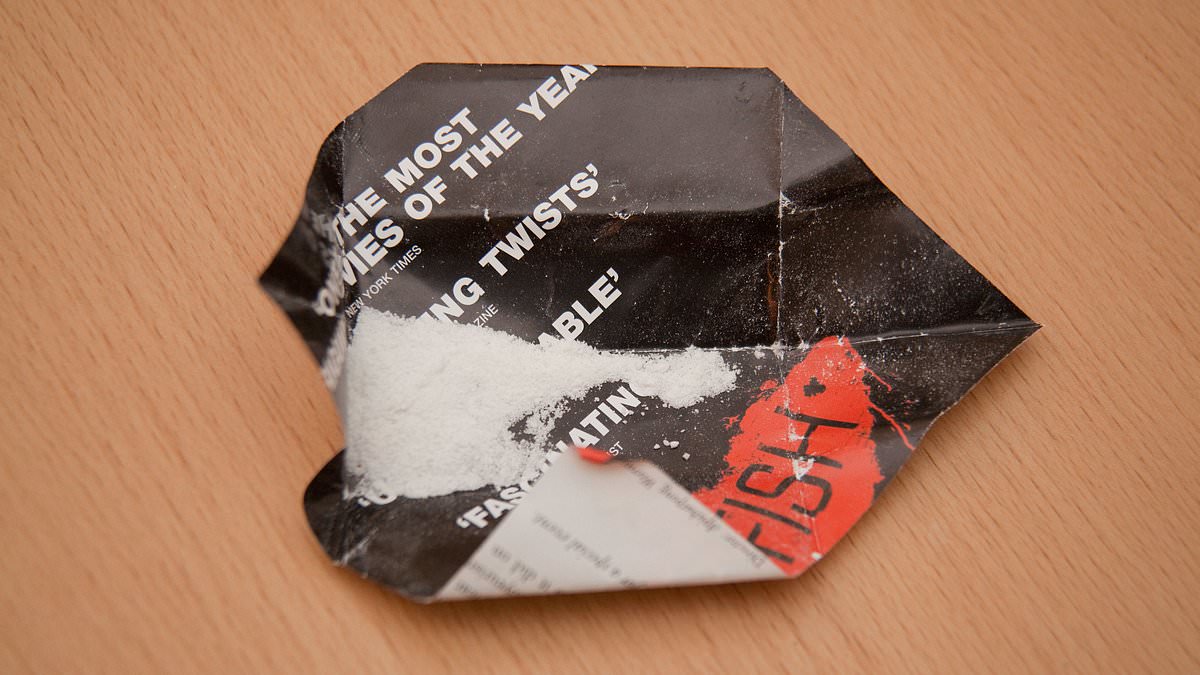A terminally ill woman’s lifelong stutter disappeared after she was given ketamine, doctors have revealed.
The 60-year-old, from the US, suffered with a stammer since childhood. Stammers can cause people to repeat sounds or syllables and struggle to get words out.
She was prescribed the drug to treat depression while she was living in a hospice because of her stage four kidney disease.
The unexpected and ‘substantial’ effect began within a day of taking a low, medical-grade dose of the party drug.
Medics described it as ‘life-changing’ during her final months in hospice care and revealed that she could ‘speak freely for the first time since early childhood’.

Special K, Ket, or Kit Kat (pictured), as it is also known, was popular as a party drug in the late 1990s, when it was commonly taken at all-night raves

Earlier this month, actor Matthew Perry ‘s autopsy revealed he accidentally drowned on October 28 while under ‘acute effects of ketamine,’ which could have caused him to become dazed or fall asleep in his jacuzzi, leading to his death
The woman, who was not identified, had been in and out of speech therapy since school.
However, it only ever temporarily improved her speech. Doctors still don’t know what causes stammering, which can persist into adulthood.
In some cases, it is thought to be inherited, however.
Speech and language therapy are the go-to approaches to treat stutters, which affect one in 12 young children and one in 50 adults. Around 700,000 people in the UK and 3million in the US are thought to be affected.
After five months in the hospice, the woman, who also had chronic lung disease, was diagnosed with depression and was prescribed a low dose of ketamine twice a day.
Within 24 hours of beginning the treatment, her stuttering had stopped, according to physicians, writing in Journal of Medical Case Reports.
Family and friends, who had only ever known her with a stutter, noticed the chance immediately.
Doctors wrote: ‘The impact of the ketamine prescription’s unexpected effect was substantial.
‘The patient could consistently speak freely for the first time since early childhood.
‘This effect itself gave relief from depression as she communicated with ease. For this patient, the ketamine prescription was life-changing.’
It is impossible to say whether her depression eased due to the ketamine treatment, her newly fluent speech, or a combination of both, the medics said.
Occasionally, the woman’s stuttering would re-emerge and cause her to repeat words, but never to the point that it blocked her speech, they said.
The patient died one month later. Medics did not reveal her cause of death.
The team treating the unidentified woman claimed that no cases of ketamine curing stutters have ever been reported in medical literature.
It is unclear how the drug may have eased her stuttering because the mechanisms behind the condition are not fully understood, they added.
However, they suggested it may be down to ketamine boosting her levels of dopamine. Some studies have found that the pleasure hormone can reduce the severity of stammers, the team noted.
More research into how the drug effects stuttering is needed because ‘it is possible that treatment with the same medication could benefit other stutterers’, experts said.
Ketamine is only licensed in the UK as an anaesthetic but can also be prescribed off-license as a pain killer. These versions are medical-grade and proven to be safe.
It works as a anaesthetic by blocking the neurotransmitter N-methyl-D-aspartate (NDMA), which controls actions in the nervous system. This rapidly diminishes sensations, preventing pain, inducing sleep and inhibiting memory.
The class B drug is increasingly being studied as a therapeutic for depression and PTSD.
Special K, Ket, or Kit Kat, as it is also known, was popular as a party drug in the late 1990s, when it was commonly taken at all-night raves.
But its popularity slipped in the 2000s when it became a Schedule III drug and concerns were raised over side effects including hallucinations and, in rare cases, seizures.
It was dubbed Britain’s ‘campus killer’ earlier this year when it was revealed it had caused 41 student deaths since 1999, according to the National Programme on Substance Abuse Deaths.
Earlier this month, actor Matthew Perry’s autopsy revealed he accidentally drowned on October 28 while under ‘acute effects of ketamine,’ which could have caused him to become dazed or fall asleep in his jacuzzi, leading to his death.










